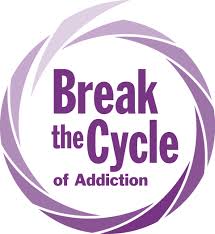Those of us who’ve loved an addict or have been one, may wonder, how did this happen? Why can some people drink and others can’t? We know addiction is a progressive and terminal illness. It gets worse, not better, over time. Addiction is genetic and it runs in families. It also needs an enabling system to thrive. Whether an addict or the family member of one, there are definite stages along the way.
First stage: Remorse, shame and embarrassment over consequences of using.
Second stage: promises not to use, I’m sorry. Broken promises
Third stage: Get off my back
Fourth stage: Use to oblivion.
First Stage: Remorse. The Addict- “I drank too much; I’m never doing that again. I promise.”
First Stage: The Family. Anger. “You didn’t come home all night. If you ever do that again I will leave.”
This period of remorse lasts as long as the addict/alcoholic physically feels poorly.
Once they feel ‘better’ the cycle begins again.
Second Stage: Broken Promises. Bargaining and negotiations begin. The Addict- I know I said I wouldn’t use but I think I/you’re overreacting. Don’t worry. This time I’ll only drink beer, or smoke pot. I need something to relax.
Fear: Family- But you promised. Well….. Maybe I was overreacting.
What nobody understands at this point is the person using, has lost all ability to accurately predict the outcome. He/she might have a drink or two, but they might not. Once alcohol or substance is ingested the brain can no longer make rational decisions.
Addicts/alcoholics are just as shocked as their family members, when they don’t come home. The intention often isn’t to stay out all night. Rather to go out ‘for a couple.’
For many there is no off switch when using substance. For those who can ‘control’ their using, the families still pay. An addict or alcoholic who comes home because they ‘promised’ too and not because they want to, will make you ‘pay’. They’re often miserable and looking for a fight. Then their disease has another excuse to use.
Family members and the addict are experiencing denial and delusion at this point.
Denial makes the problem smaller.
Delusion says ‘what problem? There’s no problem. It’s a sincere belief in spite of the mounting evidence.
Family members accommodate the addict’s needs, often shouldering the consequences of their actions by bailing them out, or cleaning up the mess.
Stage Three: Back off. Other relationships begin to suffer. Secrets are kept. Families become isolated and learn to walk on egg shells. They often blame each other. Bitterness, misery and resentment become a way of life. Each thinks the other is responsible for the problem. The addict’s message is clear when being confronted on addiction. (Back off) The enabler’s message is clear when being confronted on the role they play aiding the addict in staying sick (Back off)
Healthy concern crosses the line, causing both family and the addict to be consumed by addiction. The addict is unable to stop thinking about their next fix, while the family member is unable to stop thinking about the addict. This is also known as mental obsession.
Stage Four: Using to oblivion, or the terminal stage. The Addict has usually tried and failed many times to quit using by this point. The Addict no longer uses for pleasure, but instead to ingest as much and fast as possible. The physical body is often dependent on the substance and will go into withdrawal without it. The Addict is apathetic and no longer cares.
The family member may be experiencing sleeplessness, high blood pressure, migraines, stomach aches, ulcers, mood swings and over or under eating.
Families make accommodations to stay in relationship with the addict. You can’t bring a healthy family member to a sick addicted one and expect them to get the sick one well. The healthy one simply becomes sick.
Like any illness the sooner ones treated the more successful the outcome.
Personally, if it was up to me, I’d forget about the addict for a moment and concentrate on the family. When a family is educated and has support systems in place and no longer enables the addict, the addict recovers nine out of ten times. Again, addiction can’t thrive without an enabling system.
Addiction is a very treatable illness and you don’t have to wait for the addict to choose treatment. For families to recover it simply requires acknowledging there’s a problem, identifying your role and making the necessary changes. Of course just like the addict, you can’t do it alone.
There’s more resources for folks who are experiencing the effects of addiction today than ever before.
All you have to do Google the name of your location and Drug and Alcohol Resources. All the help you need with a click of a button. Sounds easy, but I know it’s not. Asking for help is never easy, but then neither is addiction.
You can break the cycle of addiction. But someone’s got to start. Why not you?
